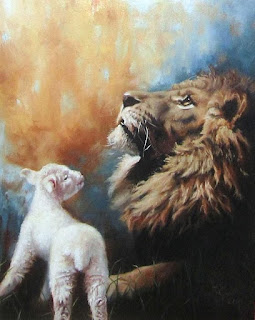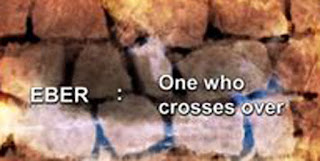It's been almost two years since I have posted, and I have been sensing that it is time to get back to it. My husband did point out to me that I published a book during my absence, so there is that. Back to blogging...
I've been pondering the near-sacrifice of Isaac in Genesis 22. Judaism calls this the binding of Isaac, or the akedah (Hebrew for binding). This word is only used once in scripture.
I know people who refuse to put their trust in God because of this account. Their logic is this: Why would God ask someone to sacrifice their child? If child sacrifice is wrong, then God is wrong to ask it.
It is a legitimate objection. On the surface, it seems like God is commanding something heinous, especially to our modern sensibilities (even though those modern "sensibilities" seem to have no problem with the rampant child sacrifice that goes on in our culture today via abortion, but I digress - sort of).
Why didn't Abraham protest? Why did he go along with it, seemingly without any complaints at all?
The culture.
Abraham lived in a time when child sacrifice was a normal thing in most cultures of the ancient world. He even came out of one of those cultures - Chaldea. The sacrifice of a child was intertwined with the worship of a pagan deity, often a fertility god/goddess. Worshipers sought to obtain a blessing from their deities. For instance, when rain was desperately needed for crops, or there was an impending battle, people would sacrifice what was important to them to get the gods to respond to them favorably.
This practice was found among the Canaanites, the Amorites, the Moabites, the Aztecs, Incas, the Druids... just to name a few. There were many more. It was pervasive in the ancient world.
Abraham was so steeped in this ideology that when the request came, he complied without surprise or a fight.
But why did God do it?
I believe that the LORD was setting up the situation as a demonstration. He was introducing to Abraham (and the world) what NOT TO DO. God could have just told him, don't sacrifice children. God was testing Abraham's heart for obedience, but that was not all. In a dramatic way, the LORD was officially putting a STOP to the evil practice of child sacrifice.
STOP, Abraham! There is going to be a better way. The LORD said, here is a ram for now, caught in a thorn bush, but I will provide MYSELF, the Lamb, who will someday wear a crown of thorns. In this whole dramatic scenario, the LORD puts a stop to the practice of child sacrifice, but He also foreshadows a day when He, the LORD will come to earth and become our sacrificial Lamb.
There are other foreshadows in the story. It was a three day journey to the land of Mount Moriah. Isaac did not protest, but laid down willingly on the altar. He even carried the wood for the sacrifice. Abraham announced to his servants that both he and Isaac would be back. Did Abraham believe there would be a resurrection? Perhaps so. But he knew that the LORD would somehow take care of it, because Abraham had been promised descendants as numerous as the seashore.
Genesis 22:12 says, He (the LORD) said, "Do not lay your hand on the boy or do anything to him, for now I know that you fear God, seeing you have not withheld your son, your only son, from me."
Verse 14 says, So Abraham called the name of that place, 'The LORD will provide,' as it is said to this day, 'On the mount of the LORD it shall be provided.'
Abraham named the place the LORD will provide. Or in Hebrew, YHWH Yireh. Or in English transliteration, Jehovah Jireh.
Someday, the LORD would not withhold His Son from mankind, in that very same place. He is asking us to trust in Him, in the same way that He challenged Abraham to trust in Him and His provision.

































